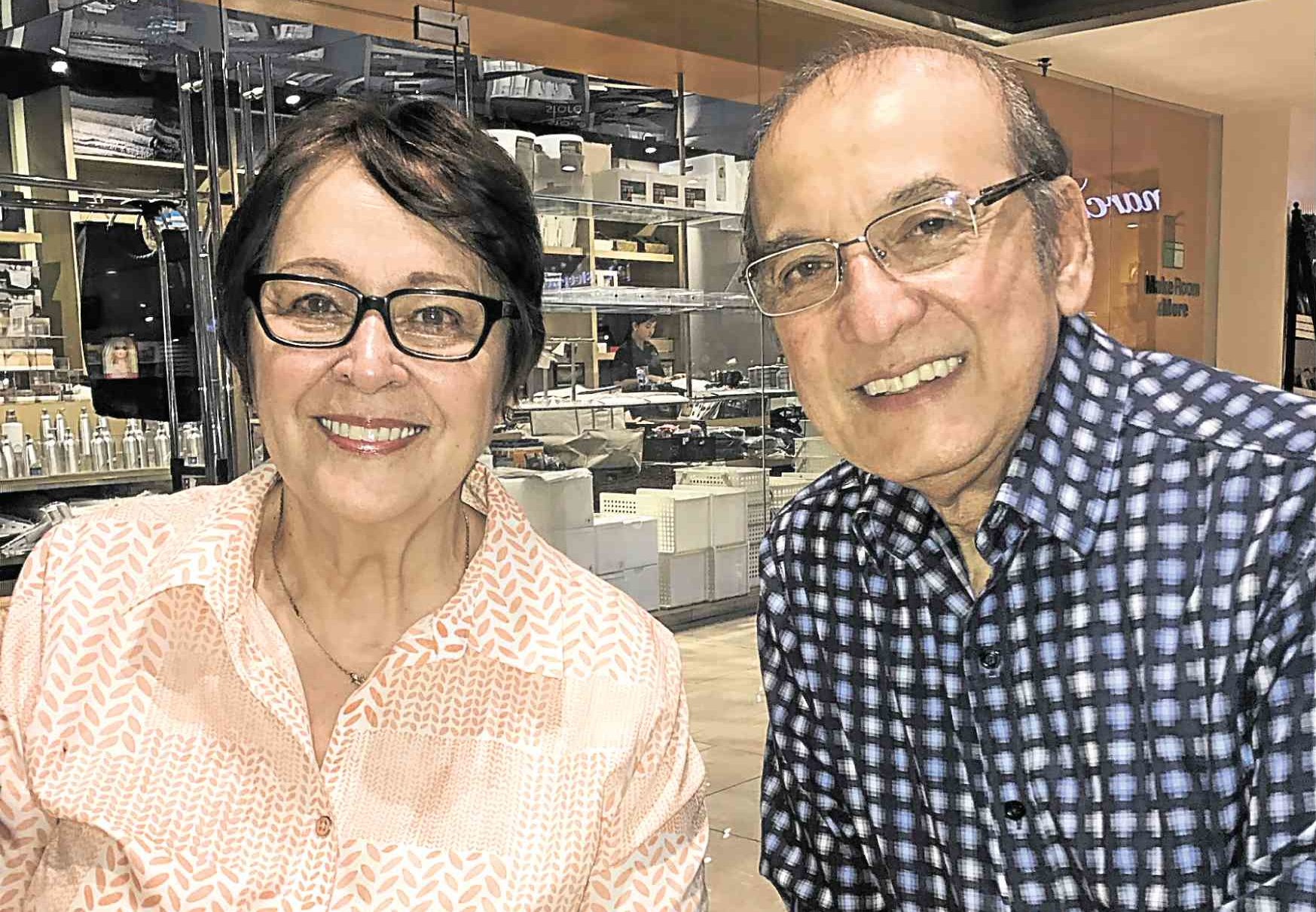Rosemarie Gil’s mind was saddled with all sorts of questions throughout the shoot of her comeback movie, Therese Cayaba’s “Delia and Sammy,” an entry in this year’s Cine Filipino film festival, which unreels in May.
She kept asking herself: “Was I consistent in my character? Should I have done things differently?”
The actress admits, in hindsight, that she can be a tad too hard on herself. After all, she had been away from the movies for at least 12 years or so.
It was daughter Cherie Gil, also an acclaimed actress in her own right, who had broached the idea of returning to the family business.
“We were eating when Cherie told me about this script,” Rosemarie recalls. She had serious reservations, though: “Can I still act? Will I be able to remember my lines? My memory is so bad!”
Moreover, it was an indie production—considerably smaller in scale compared to the big-budget projects she had done in the past.
She exclaims: “What’s an indie?” Of course, she knew about the indie films that had won plaudits for her grandson Sid Lucero and children Cherie, Michael de Mesa and the late Mark Gil.
Still, she was stunned. “You can finish a movie in nine days? How do you do that? I was so illiterate when it came to this new digital technology.”
Cherie accompanied Rosemarie to the first meeting with the filmmaker, to explain how indies worked and guide her along the way.
Luckily, the Sammy to her Delia was an old family friend, seasoned actor Jaime Fabregas. “Rosemarie was initially reluctant to accept the role,” Jaime volunteers. “She said she had been away for too long and was not sure if she could do it.”
He recounts: “I told her that it was like riding a bicycle. You never really forget how to do it. And I was right. She was fantastic! It was great working with her.”
On the second day of the shoot, however, Rosemarie broke down in tears, out of sheer exhaustion and exasperation. “I was so tired,” she recounts. “I had a lot of big scenes that day.”
Her director Therese relates: “It was the last scene of a very long day, and it was a highly charged one. It was physically and emotionally draining for her.”
Still, the consummate pro that she is, Rosemarie pulled through.
“When it was time to go back in front of the camera, she would do her scenes perfectly, in spite of the heat or the hassles on the set,” the newbie director says. It was as if she wasn’t acting at all. “You can plainly see that she has a deep well of experiences to draw from …”
It was not all sturm und drang on the set.
Rosemarie thoroughly enjoyed her onscreen rapport and repartee with Jaime. “I’ve known Jaime for a long time. He made things comfortable for me. He understood me so well.”
Also, Rosemarie shared the screen with Cherie’s friend and “Champoy” costar, Tessie Tomas—one of her “favorite” parts of the film. Rosemarie volunteers: “Tessie is an actress. You forget everything around you.”
According to Tessie, she stayed on the set long after her sequence had been shot. “I had dinner with her and the crew. Rosemarie asked me to do my Amanda Finida weather report monologue. She kept laughing after my performance!”
Therese acknowledges: “We were surprised that Ms Rosemarie had good comedic timing. We didn’t expect that she would be so funny, because all her movies in the past were heavy drama.”
“And I was always high-strung,” Rosemarie quips, without missing a beat.
When someone asked what her role was in a certain project, like the coming ABS-CBN soap opera “Nostalgia,” she always had a ready retort: “You have two guesses: It’s either matron or maldita.”
Or both!
In “Delia and Sammy,” however, she gets to show a whole spectrum of emotions, the different shades of a woman—manipulative, stubborn, but also loving and sensitive.
She remarks: “When I was reading the script, I was looking at it from different angles. I asked myself: How am I going to do it? But in my scenes with Tessie and Jaime, I felt good. I knew where I was going.”
After all, she is the acknowledged matriarch of the Eigenmann acting dynasty—the local version of Hollywood’s Barrymores. Even the in-laws and grandchildren of the clan are naturally gifted actors, Rosemarie asserts.
Husband Eddie Mesa proudly points out that when the audience gets to watch this film, they will see where “our children and grandchildren’s talent came from.”
Rosemarie sharply disagrees, saying that Eddie is no slouch himself as a thespian of considerable range and depth—as evident in his 1991 movie with Sharon Cuneta, “Kaputol ng Isang Awit.”
Yes, it takes two to tango and build a vast acting empire.


